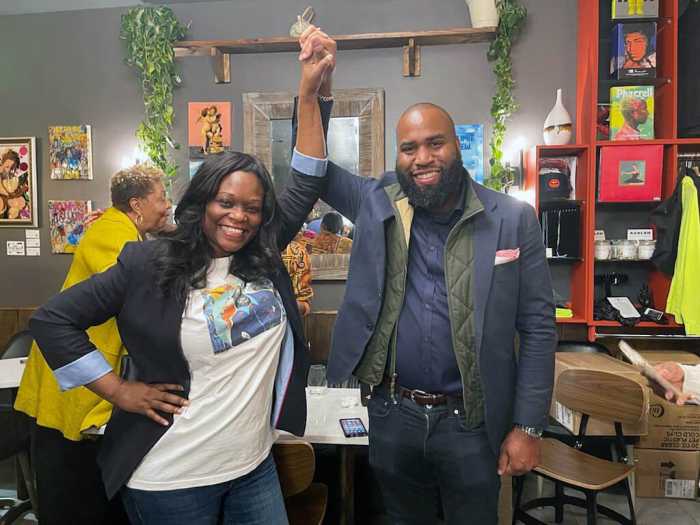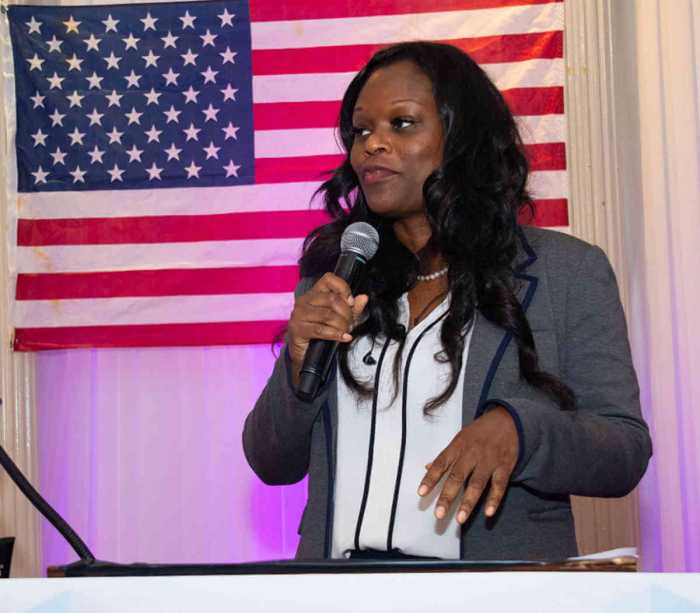Caribbean-American legislators and immigration advocates on Thursday condemned the United States Supreme Court’s ruling on affirmative action at colleges and universities around the nation, saying that the ruling will have serious repercussions for Black and brown students around the country.
In a 6-3 vote, with all conservative justices voting in favor and the three liberal justices dissenting, the highest court in America dismissed affirmative action at colleges and universities, ruling that race-conscious admissions programs at the illustrious Harvard University in Massachusetts and the University of North Carolina were unconstitutional.
Thus, the court ended a long-standing policy of admissions at colleges and universities in the United States.
“For decades, affirmative action stood as a policy that promoted diversity and a chance at equal education to remedy the lingering impacts of slavery, Jim Crow, and the history of segregation that has threatened to keep the American Dream out of reach for so many people of color,” Caribbean-American Democratic Congresswoman Yvette D. Clarke, the daughter of Jamaican immigrants, told Caribbean Life.
“The Supreme Court’s ruling to dismantle affirmative action in college admissions will have serious consequences for Black and brown students across the nation and for generations to come,” warned the representative for the largely Caribbean 9th Congressional District in Brooklyn. “Our nation was founded on the basic principle that we all deserve the same opportunity to achieve our highest aspirations.
“The Supreme Court’s decision is a reminder of how far we still have to go to ensure all Americans are treated equally,” Clarke added. “It’s clear that the American people continue to see this court faces a legitimacy crisis, and we cannot falter in our fight for racial justice and equal opportunity for every single student.”
New York City Public Advocate Jumaane Williams, the son of Grenadian immigrants, said that, “with this ruling, the Supreme Court has chosen to ignore our nation’s history and jeopardize our youth’s future.
“The decision was entirely expected from this conservative court, but still extremely hard to hear, and to reckon with its implications on the fight for racial equity, diversity and justice,” he told Caribbean Life. “The march forward on these issues has been painfully slow, but largely forward– now the court is pulling us back, creating the conditions for young people of more color today to have less opportunities than the generation before them.
“Students with a legacy of systemic privilege or power may see its benefits, students confronting a legacy of systemic racism and discrimination will see only barriers,” added Williams, noting that in her dissent, Justice Sonia Sotomayor wrote that “Ignoring race will not equalize a society that is racially unequal. Equality requires acknowledgment of inequality.”
“It’s clear that conservatives want to ignore race when it is convenient to do so, and ignore reality when it is inconvenient to their philosophy and policy goals,” Williams continued. “While Republican lawmakers attempt to remove our history of racial injustice from the classroom, conservative justices are trying to remove racial equity from classrooms altogether.”
New York State Assemblywoman Rodneyse Bichotte Hermelyn, the daughter of Haitian immigrants, who chairs the Brooklyn Democratic Party, said that the court’s “devastating decision to gut affirmative action in higher education is destroying equitable education for all.
“We’re undoing decades of progress towards evening the scales for racial equality,” said the representative for the 42nd Assembly District in Brooklyn. “The Court considered affirmative action programs at Harvard and UNC (University of North Carolina) to be unconstitutional. Let’s not forget that, in the 1950s, UNC didn’t even admit Black students to participate in what is now the charge of all leaders, educational inclusion.
“This ruling could have overarching consequences, including undermining workplace diversity and sets a dangerous precedent unraveling the equal protection clause of the 14th Amendment (to the US Constitution),” Bichotte Hermelyn cautioned. “SCOTUS (Supreme Court of the United States) is turning a blind eye to the glaring racial inequities and discrimination that minorities face in educational access and opportunities.
“We cannot pretend to be colorblind when your race still matters in decision making,” she added. “And systemic racial barriers should be considered in admissions concerning access to education.
“As the largest Democratic County party in the nation, we are dedicated to defending diversity, and ardently advocate for affirmative action, which has established a policy-making umbrella to equality across the nation,” continued the chair of the Brooklyn Democratic Party. “We’ll continue to fight in unity against discrimination while breaking down barriers.”
Murad Awawdeh, executive director of the New York Immigration Coalition (NYIC), an umbrella policy and advocacy organization that represents over 200 immigrant and refugee rights groups throughout New York, said that the US Supreme Court made clear on Thursday that “they either don’t fully comprehend the appalling impact that systemic racism has on our society, or they do know and just don’t care.
“Their decision to terminate the usage of affirmative action policies in college admissions halts what little progress had been made thus far on campuses and throughout the nation to begin to level the playing field for all Americans, regardless of race,” he said. “The Supreme Court’s decision means that higher education closes the door for many students of color while, simultaneously, allowing universities to grandfather in the racist policies of previous generations through the legacy admissions system.
“Denying colleges the right to create intentionally diverse student bodies will be a detriment not only to the students who will be denied a real opportunity to enroll at their college of choice, but also to the many students who will lose out on the shared experiences of navigating cultural and racial differences in an increasingly connected world,” Awawdeh added. The ultimate impact of today’s decision won’t just hurt students of color, but will also reverberate with disastrous consequences throughout our entire society.”
In writing for the majority, US Supreme Court Chief Justice John C. Roberts, said that “the Harvard and UNC admissions programs cannot be reconciled with the guarantees of the equal protection clause.
“Both programs lack sufficiently focused and measurable objectives warranting the use of race, unavoidably employ race in a negative manner, involve racial stereotyping and lack meaningful end points,” he wrote.
“Nothing in this opinion should be construed as prohibiting universities from considering an applicant’s discussion of how race affected his or her life, be it through discrimination, inspiration or otherwise,” Justice Roberts added. “In other words, the student must be treated based on his or her experiences as an individual — not on the basis of race.”
But in a blistering dissent, Justice Sotomayor wrote that “the court subverts the constitutional guarantee of equal protection by further entrenching racial inequality in education, the very foundation of our democratic government and pluralistic society.
“At bottom, the six unelected members of today’s majority upend the status quo based on their policy preferences about what race in America should be like, but is not, and their preferences for a veneer of colorblindness in a society where race has always mattered and continues to matter in fact and in law,” she said.
“This supposed recognition that universities can, in some situations, consider race in application essays is nothing but an attempt to put lipstick on a pig,” Justice Sotomayor added. “Without any new factual or legal justification, the court overrides its longstanding holding that diversity in higher education is of compelling value.
“To avoid public accountability for its choice, the court seeks cover behind a unique measurability requirement of its own creation,” she continued. “The pursuit of racial diversity will go on.
“Although the court has stripped out almost all uses of race in college admissions, universities can and should continue to use all available tools to meet society’s needs for diversity in education,” Justice Sotomayor said. “Despite the court’s unjustified exercise of power, the opinion today will serve only to highlight the court’s own impotence in the face of an America whose cries for equality resound.”


























